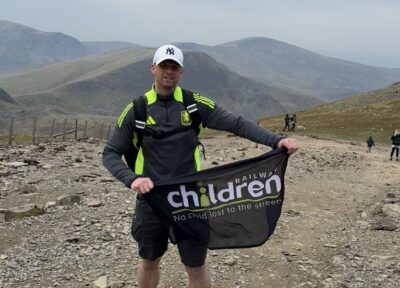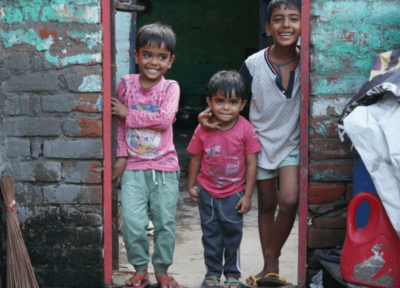
We're tackling: education access
Education changes lives. Learn how Railway Children helps children access the learning they need to thrive.
Education access: A global crisis
Every child deserves a chance to build the life they want to live, and that’s made possible through education and training. But not every child has access to regular, high-quality learning.
More than 250 million children around the world are out of school*.
Street-connected and vulnerable children are forced onto the streets every day, in search of work or simply to survive. Without attending school, they stand little hope of improving their chances, unless they find support programmes like ours.
Research shows that children excluded from education are more likely to become economically dependent or entangled in criminal systems.
In India, Tanzania and the UK, we help young people at risk access life-changing educational opportunities and tackle the root causes of exclusion or disengagement from school, so they can find a path that works for them.
By helping a child get back into school, we give them a chance to break the cycle of poverty and exploitation.
Why are so many children out of school?
There are several risk factors keep children from getting regular education, including…
Poverty
Families living in poverty often can’t afford the costs of education, such as school fees, uniforms, books and transportation. Children may also be forced to work to contribute to their family’s income, either through child labour or household chores, which leaves them with little to no time to attend school or do homework. This can trap families in a cycle where they cannot invest in their children’s education, which would be their best chance to escape poverty.
Gender inequality
In many cultures, girls are expected to prioritise domestic duties, get married young, or are simply not seen as needing an education. Many schools also lack safe and separate sanitation facilities, which can be a barrier for adolescent girls. As a result, they are often denied the opportunity to develop their full potential and are prevented from achieving the independence that education brings.
Family breakdown
When a family breaks down due to conflict, death, or other issues, children might lose the stability necessary for them to succeed in school. The psychological trauma of a family breakdown can make it difficult for a child to focus on their studies. If they feel unsupported, they may spend a lot of time away from home or stop attending school altogether. They may also be forced to take on new responsibilities, such as caring for younger siblings, working, or managing a household, which leaves little time for learning.
Homelessness
Street-connected or homeless children usually don’t have regular access to school. They may frequently move between temporary shelters or different homes, making it difficult to stay focused and keep up with schoolwork. Those living on the street are often forced to fight for survival by taking any work they can find, including exploitative work.
Mental health
Mental health challenges can affect a child’s ability to engage in school. Conditions like anxiety and depression can lead to a lack of energy, motivation, and concentration, making it difficult for them to participate in class or complete assignments. When children feel disconnected, either emotionally or socially, their overall academic performance and school attendance can suffer.
Lack of support systems
For neurodivergent and disabled children, the lack of adequate support systems is a major barrier to education. Without specialised teachers, accessible facilities, or tailored learning plans, schools are often unable to meet their unique needs. This can lead to these children feeling overwhelmed and misunderstood, causing them to fall behind or disengage from learning.
Bringing learning directly to communities in India
In India, Railway Children India bring education directly to street-connected children. The teams run Child Activity Centres within slum communities, providing a safe space for children to learn and grow.
These centres offer informal classes on self-awareness, leadership, and other life skills to some of the most vulnerable children.
They’re especially crucial for young girls, who get the opportunity to connect with peers, build a support system, and inspire one another to pursue their dreams.
Our outreach teams also deliver educational sessions directly to street-connected children, ensuring that learning is accessible to even the most vulnerable.
By meeting children where they are, we give them the chance to develop the foundational skills and confidence needed to build a better life.
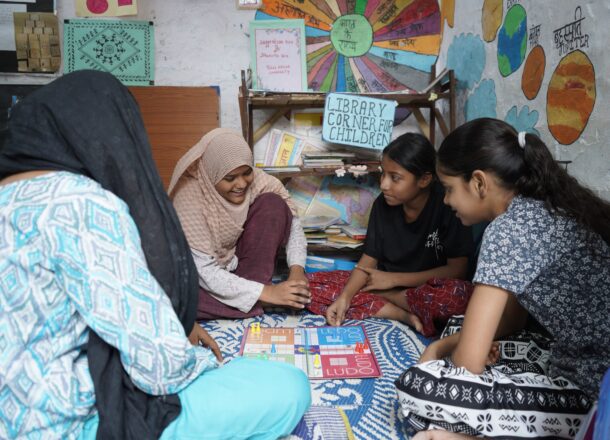
Removing barriers to education in Tanzania
In Tanzania, we focus mainly on breaking down the practical barriers that keep children from going to school.
For many families, poverty means they can’t afford essential school supplies like uniforms, shoes, books, and bags. We provide these vital items to ensure that children have the opportunity to get a basic education.
Beyond formal schooling, our outreach workers run educational sessions on the streets, teaching crucial life skills such as self-care, staying safe, and managing emotions.
For older young people (aged 15-24) who have nowhere else to go, our Youth Associations offer a path to independence. We help them build sustainable livelihoods through workplace training and support for small business start-ups.
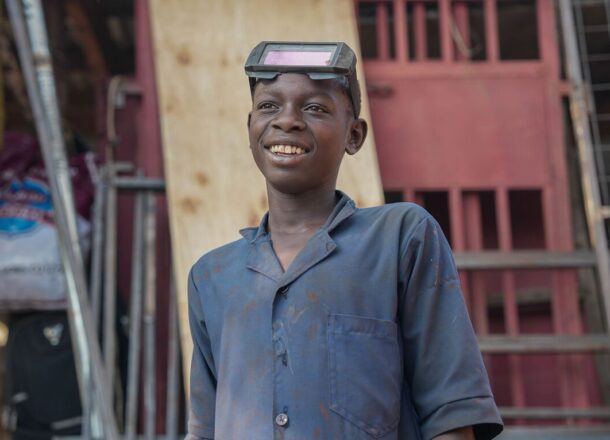
Raising awareness of the power of education
Some practices that keep children out of school – like child labour and child marriage – are deeply rooted in social norms.
To tackle this, we run family sessions with parents or carers of children at risk to explain the importance of keeping their children in education and how learning can be a ticket out of poverty.
We also support parents to access skills and trade development opportunities, so they can start to build a stable income for the family, allowing their children to focus on school.
When poverty stands in the way of education
Every child deserves the chance to learn, but for ten-year-old Rishi*, the death of his father meant school was out of reach.
His family were struggling to survive on his mother’s small income, so education felt like an impossible dream.
But Railway Children India were able to open the door to hope, opportunity and a brighter future for Rishi.
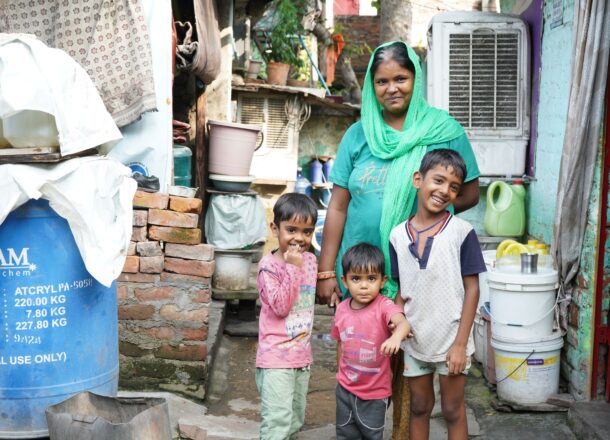
Empowering UK young people to chase their dreams
In the UK, we’re tackling the issue of school exclusion, which disproportionately affects children from the most deprived neighbourhoods.
Being out of school increases a young person’s risk of unemployment, mental health challenges, and even imprisonment.
To combat this, our teams work directly with children and their families to find educational paths that fit their unique needs. We believe that with the right support, every young person can find a future they’re excited about.
Take Toby, for example. After being out of school for 10 months, our support worker helped him discover a course that combined his love of football with a coaching qualification.
Now, he’s attending a football academy, developing skills that will help him succeed both on and off the field.

